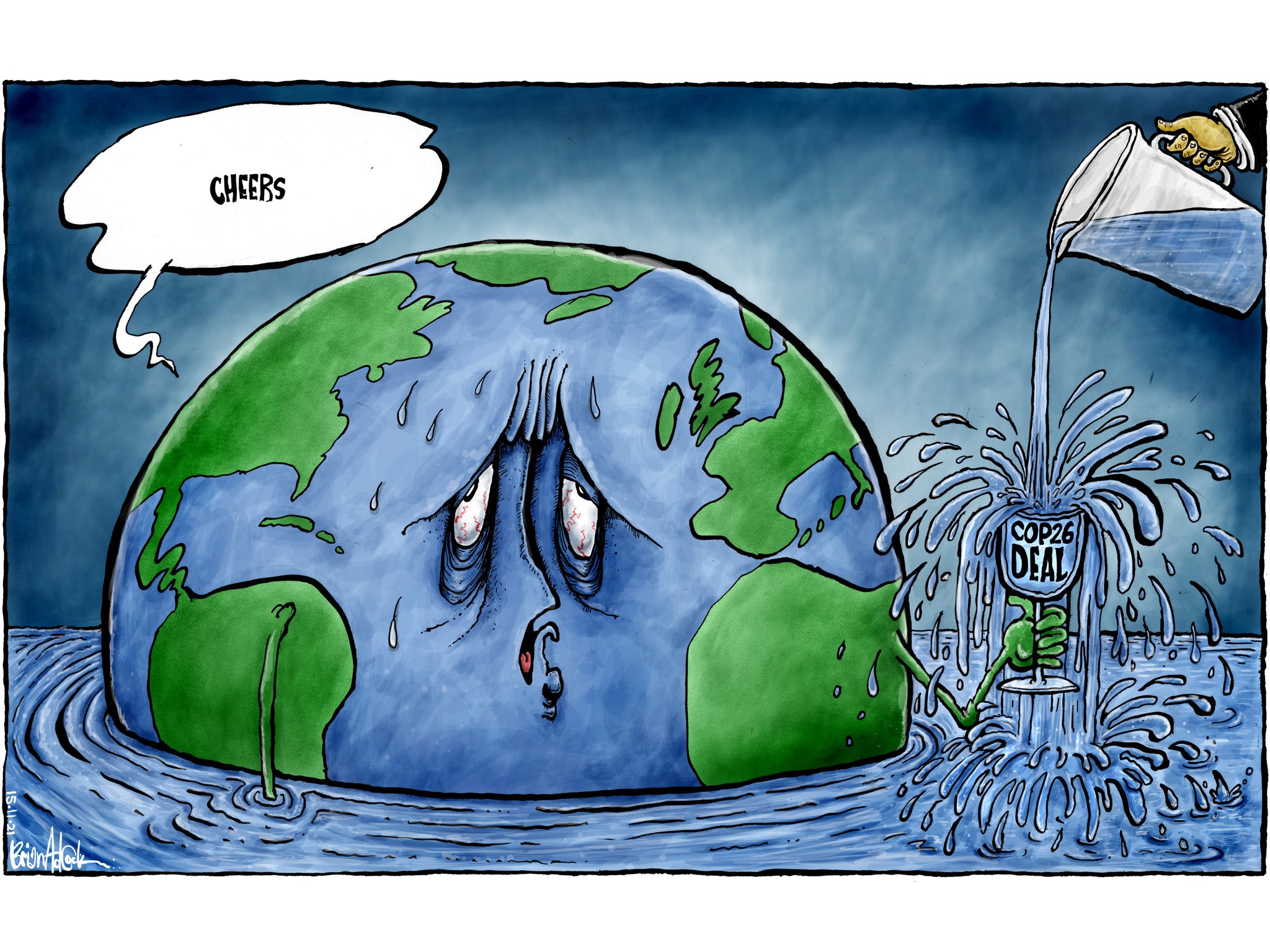There is no time for world leaders to rest on their laurels because the Cop26 summit in Glasgow managed – just – to keep alive the goal of limiting the rise in global temperatures to 1.5C above pre-industrial levels.
Indeed, there is not a second to waste. One of the most important breakthroughs was an agreement that countries will review their progress towards cutting greenhouse gas emissions next year rather than in 2025. This acknowledges the need to go further and faster in the current “decisive decade”, with scientists calling for emissions to be reduced by about 50 per cent by 2030; worryingly, they are on track to rise by then.
Even allowing for the pledges made in Glasgow, experts think global temperatures might increase to between 1.8C and 2.4C. That is a painful reminder that Cop26 was, at best, only a start. The vital 1.5C target will remain “within reach” only if the world’s richest countries do more.
Both the prime minister and the Cop26 president, Alok Sharma, have been at pains to point out the historic nature of getting the mention of coal into the final summit communique – despite the dilution of the pledge from “phasing out” to “phasing down” use. Mr Sharma’s disappointment at the watering down of the language seems clear, although he said that there was an hour where he believed a deal might not be done at all. Boris Johnson’s more optimistic spin was that this “game-changing agreement” sounds “the death knell for coal power” and that whether it is “phase down” or “phase out” the world is heading in the right direction.
There are signs of hope. One is the unexpected agreement between the United States and China to work together on tackling the biggest challenge facing the world. They must now ensure that warm words are followed by actions, notably over the new technology that will have to play a critical role in saving the planet. India and China should both reflect hard on the understandable ill will towards them around the world after the downgrading of that language over coal.
The global north should keep alive the momentum of the past two weeks by meeting its overdue promise to the global south of $100bn (£75bn) a year for climate adaptation and mitigation in 2022 rather than 2023, as is currently likely. The rich countries should also respond swiftly to the overwhelming case made in Glasgow for reparations for the “loss and damage” they have already caused.
The UK’s role does not end with the Glasgow summit; it will formally hold the Cop presidency until Egypt takes over when it hosts Cop27 in November next year. Mr Johnson has said conference has created a roadmap to “plot the way ahead” and that the world has equipped itself with the tools to tackle the climate crisis. To quote his hero Winston Churchill, this needs to prove the “end of the beginning”.
Mr Johnson must remain fully engaged in this vital issue in the year ahead. He should ensure the new mood evident at the summit is reflected in the UK’s trade deals so they pay more than mere lip service to the 1.5C goal; ominously, that did not happen in the agreement with Australia.
There is much for the prime minister to do on the domestic front too. The government’s long-awaited “net zero by 2050” strategy outlined last month did give the UK credibility as chair of the Glasgow conference. While ministers can hail it as world-leading, they now need to will the means to reach the ends. There is a big hole in the government’s strategy where Rishi Sunak and the Treasury should be.
The word “climate” did not pass the chancellor’s lips in his Budget speech last month, in which he cut the duty on domestic flights. Despite a rosier than expected outlook for the public finances, he chose not to reverse the unnecessary £4bn-a-year cut in overseas aid spending until 2024 to 2025 at the earliest; doing so more quickly would give the UK more clout as it encourages rich nations to provide more climate finance. As Andy Burnham, the mayor of Greater Manchester, argues, “net zero” must not become the next issue that divides people on a class basis by creating “an even more unequal society.”
Mr Johnson must ensure that his whole government puts its shoulder to the “net zero” wheel; his much-vaunted strategy will not work without it. The show in Glasgow may be over, but the prime minister must resist the temptation to take his eye off the ball. We will be watching him closely.




Join our commenting forum
Join thought-provoking conversations, follow other Independent readers and see their replies
Comments